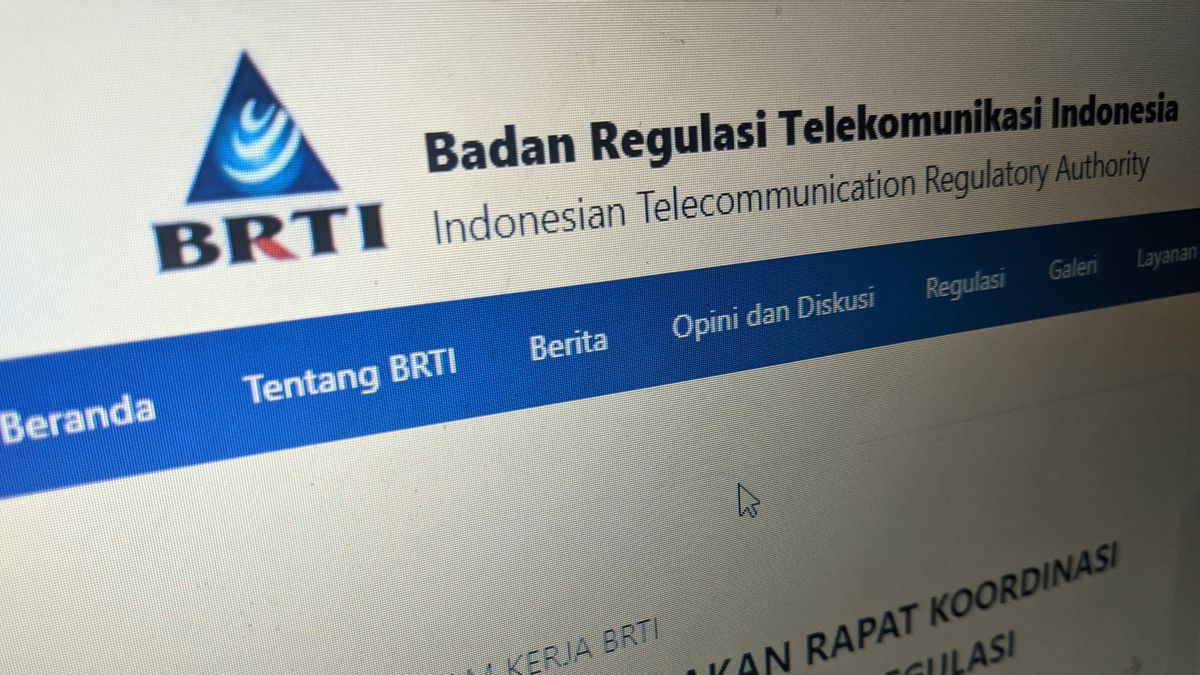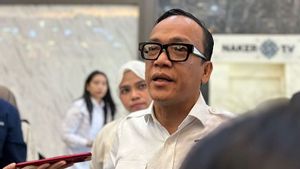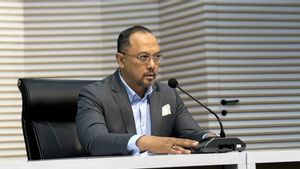JAKARTA - President Joko Widodo (Jokowi) decided to dissolve 10 non-structural state institutions. Two of them are the Telecommunications Advisory Agency (BPT) and the Indonesian Telecommunications Regulatory Body (BRTI).
The decision was stated in Presidential Regulation (Perpres) Number 112 of 2020 which Jokowi signed on November 26, 2020. Jokowi has signed a presidential decree on 26 November and was later promulgated by the Minister of Law and Human Rights Yasonna Laoly.
Quoting the contents of the prepres, the dissolution of the two institutions was carried out to increase the effectiveness and efficiency of the implementation of government affairs, as well as the national development strategic plan. Furthermore, the role and duties of the institution will be returned to the Ministry of Communication and Information Technology (Kominfo).
It is known that the Telecommunication Advisory Board (BPT) was formed based on the legal basis of Law Number 3 of 1989 and Presidential Decree Number 55 of 1989. Its duty is to provide considerations, suggestions and opinions to the Government in the formulation of policies and resolution of strategic problems in the telecommunications sector. .
Meanwhile, BRTI itself is an institution that functions as a telecommunications regulatory body in Indonesia. BRTI was formed through Law 36/1999 on Telecommunications. The function and authority of the BRTI are divided into three, namely regulation, supervision and control.
BRTI is also part of the Ministry of Communication and Information, which consists of the Directorate General of Post and Information Technology, the Directorate General of Resources and Equipment of Post and Information Technology, the Directorate General of Informatics Applications, and the Telecommunication Regulatory Committee consisting of government and community elements.
Dissolution of BRTIContacted separately, BRTI Kominfo Commissioner I Ketut Prihadi Kresna Murti said he and other commissioners would hold a meeting with the Minister of Communication and Information, Johnny G. Plate, to discuss the continuation of BRTI.
"We will only meet with the Minister of Communication and Information to discuss this tomorrow. So the update will only be delivered tomorrow," he said in his short message to VOI.
Kominfo Spokesperson, Dedy Permadi, explained that his party was conducting internal coordination regarding the Presidential Decree which was signed by Jokowi on November 26. According to him, currently there is no detailed information that can be shared.
Dedy also did not provide information about the fate of the chairmen and commissioners in the two institutions, either BRTI or BPT. However, the tasks and functions that are currently running are still running normally. The two institutions are under the Directorate General of Resources and Equipment of Post and Information Technology (Dirjen SDPPI) Kominfo.
"We are currently coordinating to implement and immediately follow up on the Presidential Decree. We cannot deliver more detailed information," said the spokesman for the Ministry of Communication and Information, Dedy Permadi.
Missing Telecommunication RefereeThe disbandment of BRTI received criticism from its former commissioner and digital economy observer, Heru Sutadi, asking the president to immediately consider the dissolution. Heru assessed that this step in the disbandment of BRTI will be in the world spotlight, because Indonesian telecommunications players need a referee to intervene.
"Ask the President to reconsider the dissolution of this institution, which is not merely an existence or absence but an international mandate pushed by the UN agency in charge of telecommunications, to present an independent telecommunications regulator," said Heru.
Dismissing the BRTI is not only a matter of eliminating an institution established under the Telecommunications Law, but of course it will become an international record. "In the absence of BRTI, Indonesia will be the only country in ASEAN that does not have an independent telecommunications regulatory body," he said.
According to Heru, independency responds to changes in the telecommunications business climate from monopoly to competition, which in an international concept requires the existence of a telecommunications regulatory, supervisory and controlling agency that is free from the interests of the government (because it owns BUMN) and business actors.
Although the middle road later remained part of the government, it was still free from the interests of telecommunications operators. Heru really hopes that there will be reconsideration from the President to review his decision and hear the history of the establishment of this institution first.
"Do not then be excluded from international relations and this will affect investment in the telecommunications sector which is increasingly important, such as during this pandemic," said Heru.
The English, Chinese, Japanese, Arabic, and French versions are automatically generated by the AI. So there may still be inaccuracies in translating, please always see Indonesian as our main language. (system supported by DigitalSiber.id)








